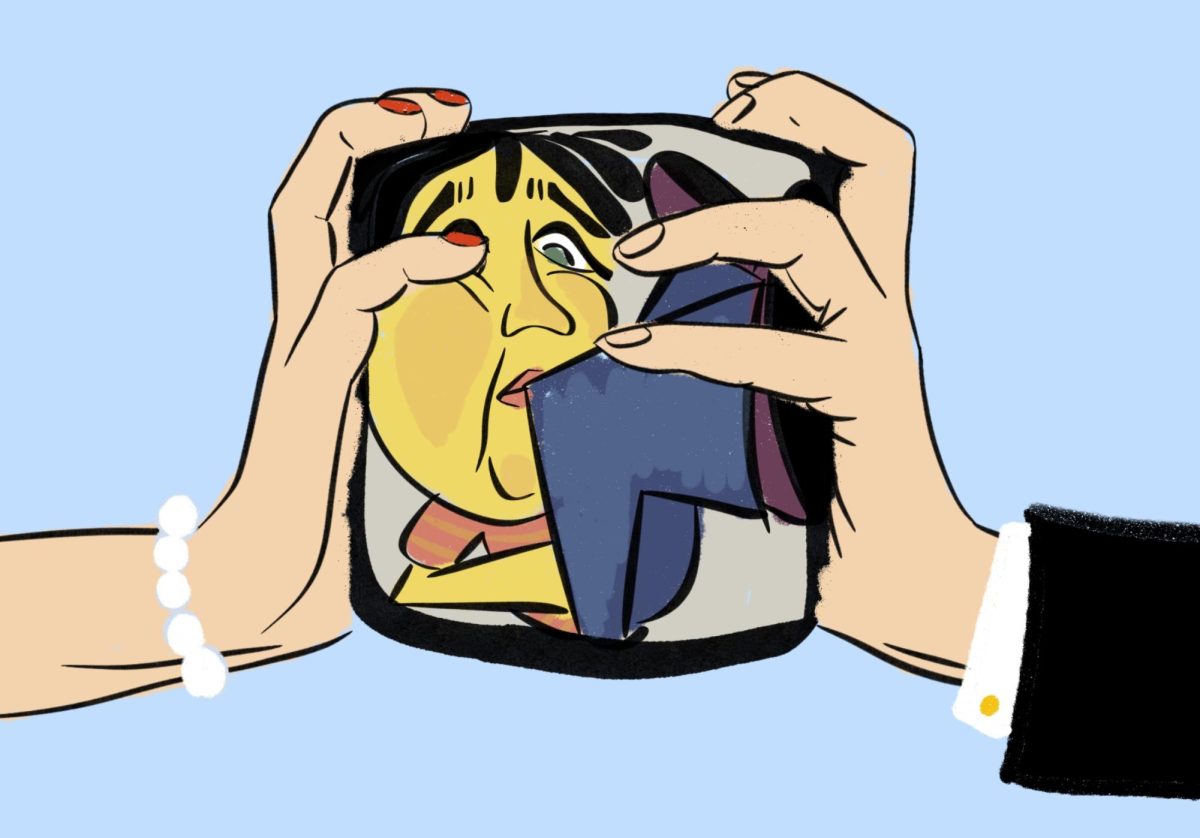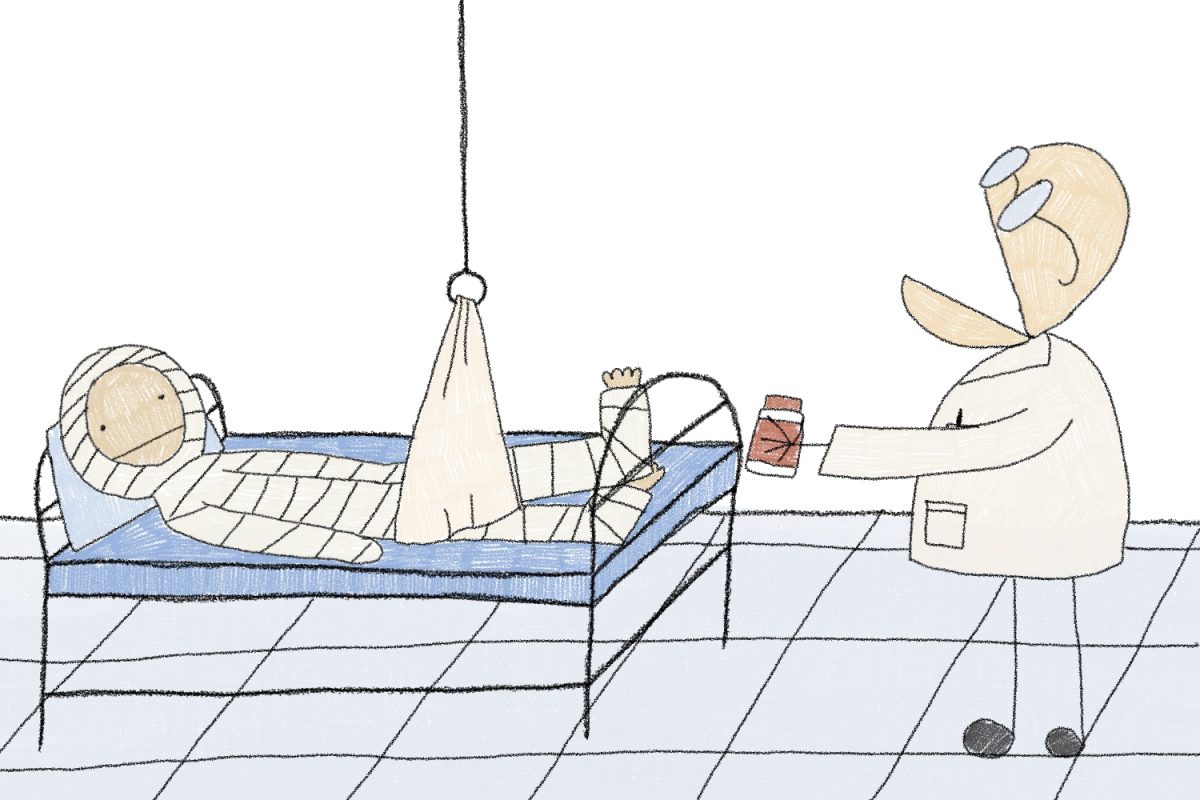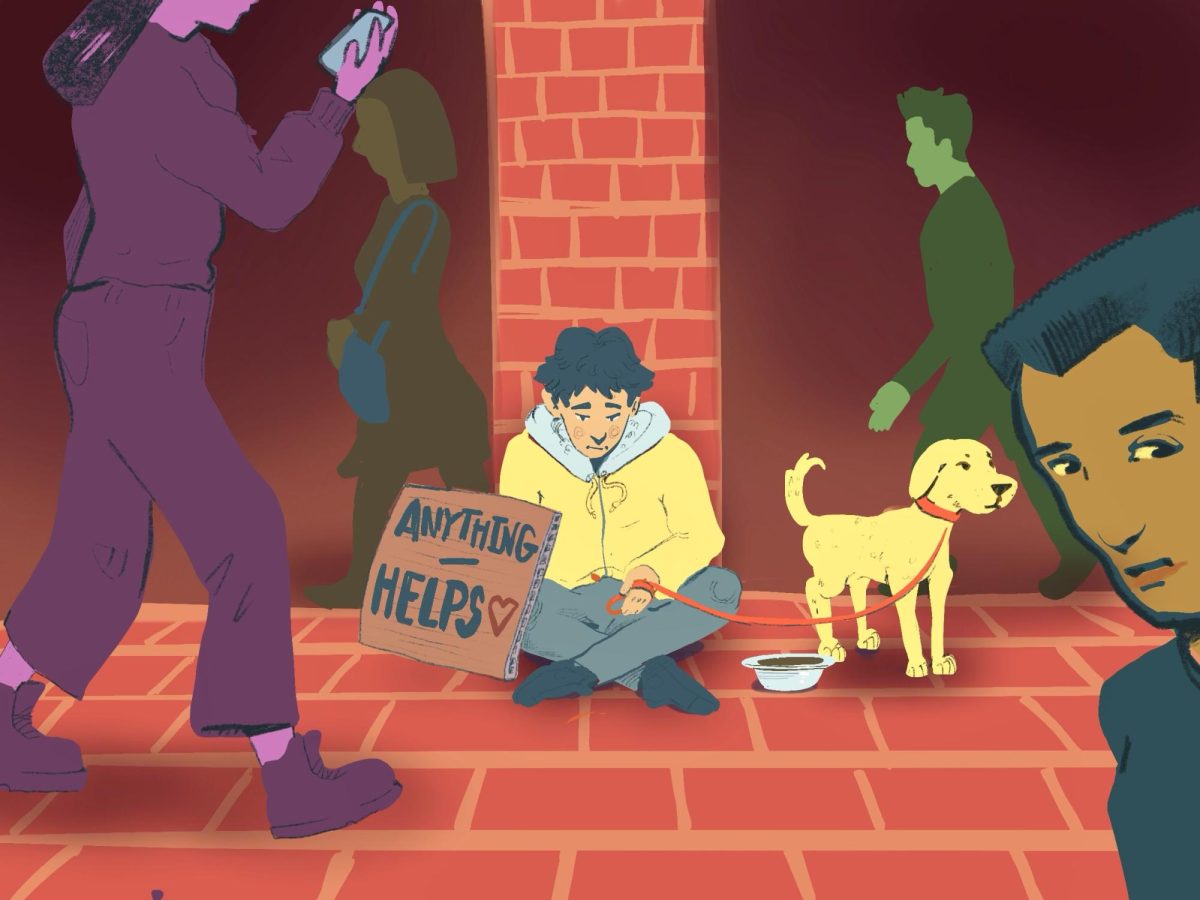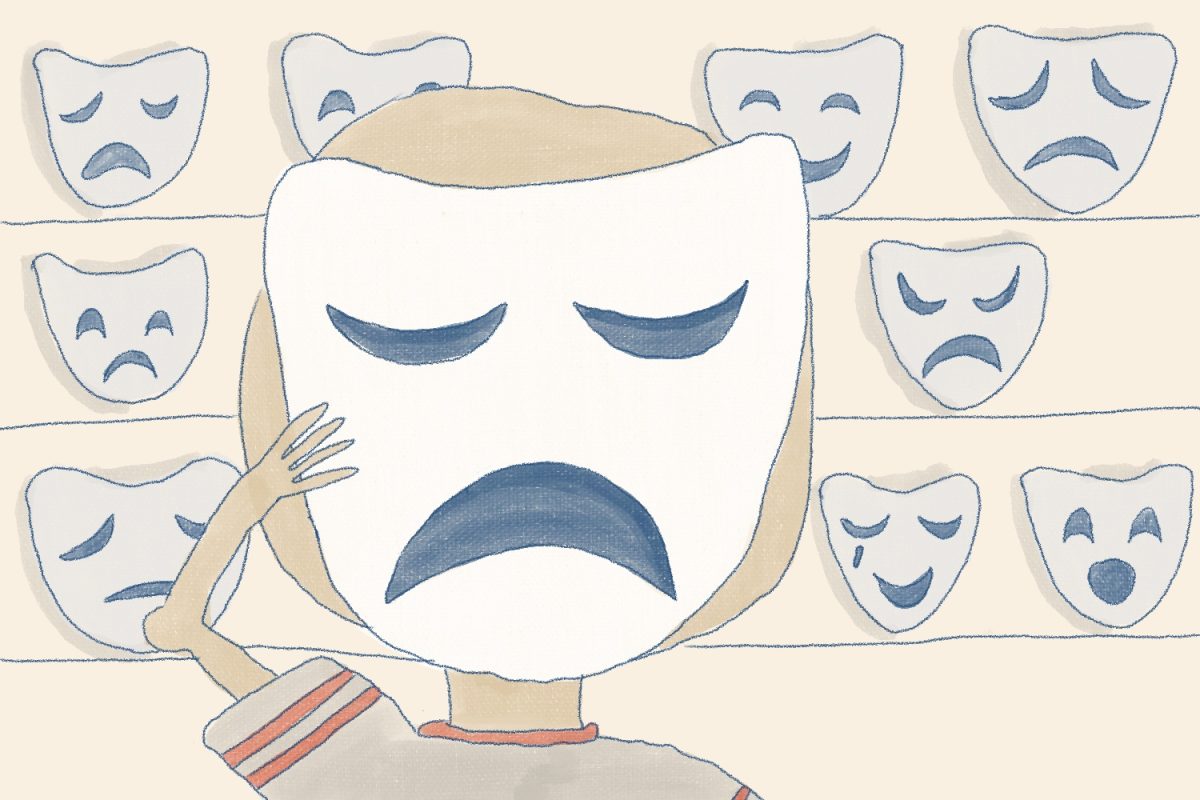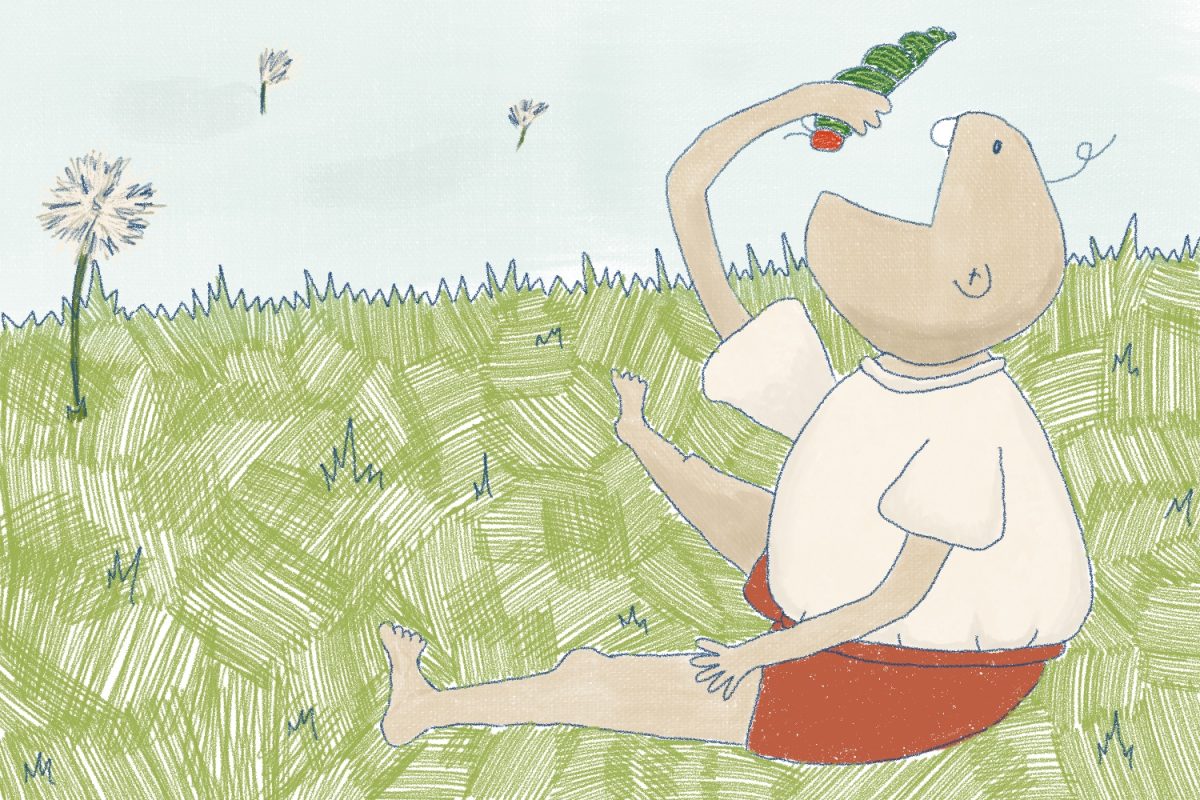My mother was nervous about my ability to make friends in college. So, with much excitement and gusto, she suggested I rush a sorority first semester.
Absolutely no part of me thought that was a good idea.
I never believed that I’d be able to join and enjoy Greek life. My queer identity and my struggles with mental health stuck out to me among the myriad of other reasons.
Being genderqueer, the biggest conflict I have with joining a sorority is my gender identity. It’s hard to feel like you belong to a sisterhood when you don’t exactly feel like a “sister” in the first place, despite being feminine-presenting and holding onto the “she” pronoun.
I and many other femme-presenting queer folk simply may not feel comfortable being part of sororities.
This is due to long-held traditions and stigma against trans identities in Greek life, according to a Jan. 30 article from Oracle: The Research Journal of Sorority/Fraternity Advisors.
Nonbinary and trans students may not even find the idea of Greek life desirable at all—the strict gender stereotypes and general trend towards conformity can be highly unappealing, according to the article.
On top of that, admittance to a fraternity or sorority is based on the decisions of the chapter’s head members. This means that the likelihood of a trans or non-binary individual being admitted is correlated to how open-minded the chapter heads are, according to an Aug. 2022 Inside Higher Ed article.
Being LGBTQ+ is often a barrier for people wanting to participate in Greek life. Along with transphobia, homophobia also runs rampant in many sororities and fraternities, according to the same Inside Higher Ed article.
Many queer individuals have had experiences of harassment, even in places that were supposed to be safe spaces. Sororities and fraternities are supposed to provide community and family, but there are many testimonials detailing harassment due to sexuality from current and past members, according to the Oracle article.
Many people who are openly LGBTQ+ expressed concern that joining a sorority or fraternity would subject them to harassment, according to the same article. This was one of my biggest concerns as well.
This article stated that many queer youth would feel pressured to minimize that part of their identity—and stay closeted—in order to fit into their new community. Several contributors to this study gave personal testimony to this statement.
Sorority and fraternity selection, as stated before, is all about fitting in. The selection process is based often on first impressions. This pressure to be outwardly perfect is extremely taxing, according to the Jan. 30 article from the Journal of Sorority and Fraternity Life Research and Practice.
Many women rushing experience pressure to look a certain way to fit in with the ideals of a sorority they want to be part of. These ideals can include general likability based on first impressions, being white and being thin, according to a June 2021 Dartmouth study.
Women who are rushing or are part of sororities have been found more likely to experience disordered eating, body image dissatisfaction and negative social comparison, according to the Dartmouth study.
Peer pressure is a huge part of fitting in and it is experienced during all stages of being part of Greek life.
While rushing, there is pressure to look and act a certain way. Hazing rituals pressure you to prove yourself, often leading to substance abuse and possible physical harm, according to the Newport Institute.
The social aspects and pressures of Greek life have been observed to result in increased levels of substance abuse and risky behaviors, especially in fraternities. Frat members are at a much higher risk of developing alcohol use disorder, according to the National Library of Medicine.
The pressure to drink and do drugs can also trigger or worsen mental health issues in those who want to participate in Panhellenic functions, according to the study.
Another study found that women affiliated with sororities are about three times as likely to experience sexual assault than women who are not affiliated, according to the The Newport Institute.
I find this increase in risk truly disgusting.
Anxiety, depression, lowered self-worth and post-traumatic stress disorder are all possible results of sexual assault, according to Mental Health America.
Even though the pressures of Greek life are shown to be linked to mental health risks, mental health issues are extremely stigmatized in Greek organizations, according to a Dec. 2016 Michigan Daily article.
Mental illnesses are often treated as something you should hide by Greek organizations, according to the Michigan Daily article. Simply glossing over the presence of these issues is certainly not healthy.
Many first-year college students flock to Greek life in search of community and family, but many people who seek those things are turned off from pursuing membership due to aspects of their identity not being fully accepted in Greek life.
Though it’s been getting better over the years, many queer and trans students still feel unwelcome in sororities and fraternities due to long-held stigmas.
While there have been sexuality-specific or queer-oriented chapters popping up on campuses, many LGBTQ+ students are still hesitant to participate.
The call for better mental health resources in colleges has been a massive movement for some time now, but Greek life culture and traditions still contribute immensely to stress and mental health issues amongst participants.
There is much to be improved upon in terms of inclusion, education, de-stigmatization and acceptance of everyone in Greek life.
So, in the meantime, I’m staying away from it. To me and many other anxious queer individuals, Greek life simply is not worth it.







